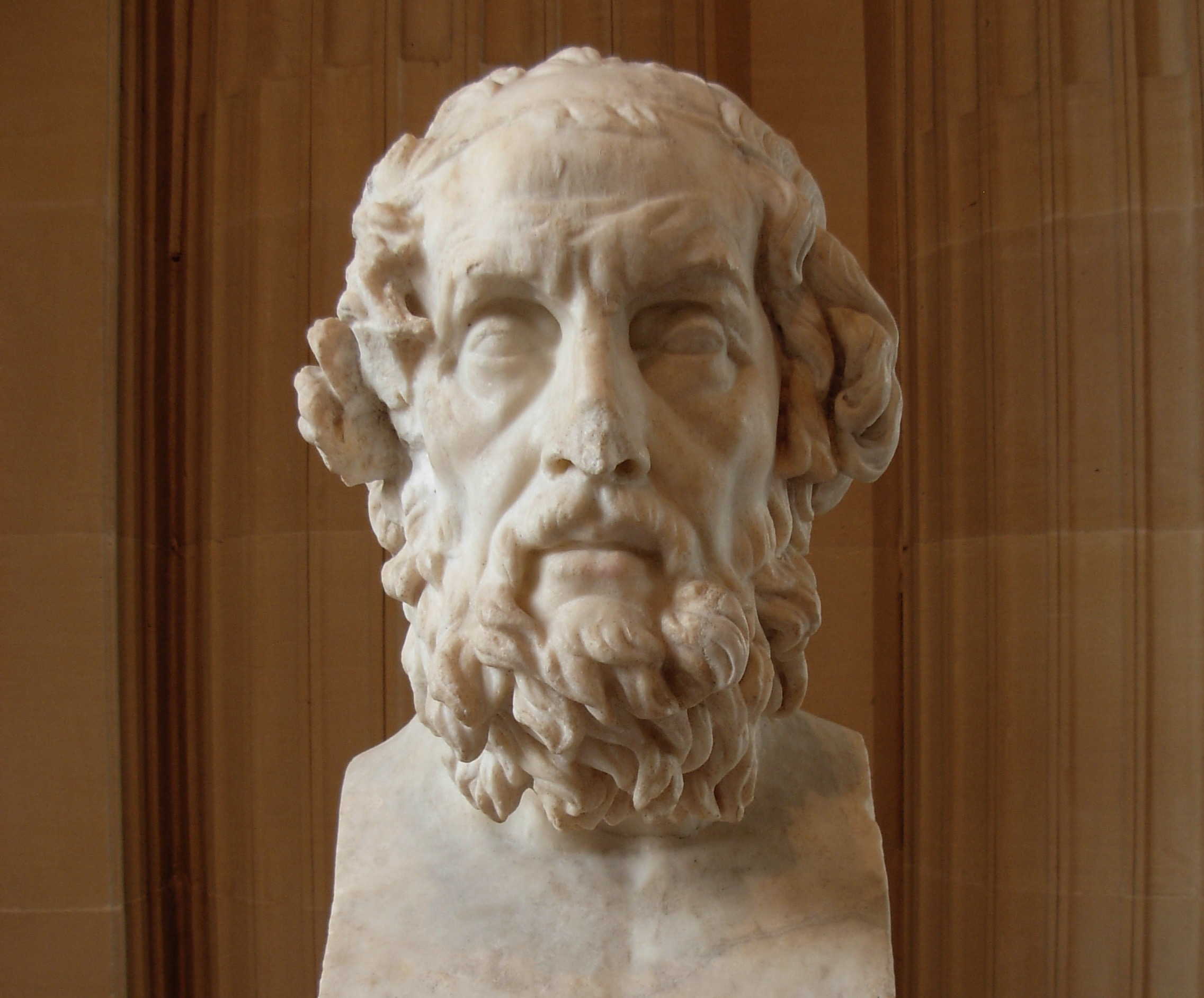
Photograph, © Copyright 2010, Bruce A. McMenomy
Week 8: Homer, The Odyssey
ca. 800 B.C.
Please have read by your classtime this week:
- Homer, The Odyssey, Bks. 13-24.
I hope you are enjoying the Odyssey; it is certainly very different from the Iliad, I am sure you will agree. If appropriate, once again refer to the section of the introductory notes relating to the Odyssey.
Keep the larger questions from last time still in mind, but consider these as well:
- What is the relationship between identity and survival — and again, how does this tie in to kleos and nostos?
- How do the gods seem to figure in the plot, as opposed to the plot of the Iliad?
- Here, even more than in the Iliad, the question of truth and falsehood, deception and honesty, reality and illusion comes to the fore. We have a number of instances where things are not what they seem to be:
- Odysseus as trickster (the Trojan horse was his idea);
- the shape-shifting of Proteus and the transformations of Circe;
- Odysseus’ anonymous travels and arrival home as a beggar;
- Helen’s “good drug” which induces forgetfulness;
- the tricks played on Polyphemus, including the name-trick;
What kind of hero do we see emerging here? Is this different from the hero of the Iliad? Consider in particular:
- What are they in it for?
- What are they willing to die for? (That they are willing to die for something is perhaps definitional of a hero — one reason the Greek gods can never be as heroically serious as mortals.)
The larger questions of what kind of thing we’s looking at — what is identity here?
The Odyssey surely jumps from one situation to another a great deal. In scene-setting, at least, it is quite episodic. Is it similarly episodic in terms of its plot, or is that a unified whole?
Contents of this page © Copyright 2001, 2003, 2006, 2010 by Bruce A. McMenomy.
Permission to print or reproduce this page is hereby given to members of Scholars Online for purposes of personal study only. All other use constitutes a violation of copyright.